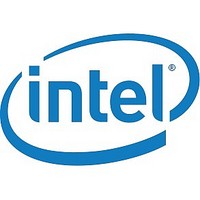NH82801FBM S L89K Intel, NH82801FBM S L89K Datasheet - Page 525

NH82801FBM S L89K
Manufacturer Part Number
NH82801FBM S L89K
Description
Manufacturer
Intel
Datasheet
1.NH82801FBM_S_L89K.pdf
(786 pages)
Specifications of NH82801FBM S L89K
Lead Free Status / RoHS Status
Compliant
- Current page: 525 of 786
- Download datasheet (5Mb)
Intel
®
I/O Controller Hub 6 (ICH6) Family Datasheet
5:4
Bit
10
9
8
7
6
3
2
1
0
Overcurrent Active — RO. This bit is set and cleared by hardware.
0 = Indicates that the overcurrent pin is inactive (high).
1 = Indicates that the overcurrent pin is active (low).
Port Reset — R/W.
0 = Port is not in Reset.
1 = Port is in Reset. When set, the port is disabled and sends the USB Reset signaling.
Low Speed Device Attached (LS) — RO.
0 = Full speed device is attached.
1 = Low speed device is attached to this port.
Reserved — RO. Always read as 1.
Resume Detect (RSM_DET) — R/W. Software sets this bit to a 1 to drive resume signaling. The
host controller sets this bit to a 1 if a J-to-K transition is detected for at least 32 microseconds while
the port is in the Suspend state. The ICH6 will then reflect the K-state back onto the bus as long as
the bit remains a 1, and the port is still in the suspend state (bit 12,2 are ‘11’). Writing a 0 (from 1)
causes the port to send a low speed EOP. This bit will remain a 1 until the EOP has completed.
0 = No resume (K-state) detected/driven on port.
1 = Resume detected/driven on port.
Line Status — RO. These bits reflect the D+ (bit 4) and D– (bit 5) signals lines’ logical levels. These
bits are used for fault detect and recovery as well as for USB diagnostics. This field is updated at
EOF2 time (See Chapter 11 of the USB Specification).
Port Enable/Disable Change — R/WC. For the root hub, this bit gets set only when a port is
disabled due to disconnect on that port or due to the appropriate conditions existing at the EOF2
point (See Chapter 11 of the USB Specification).
0 = No change. Software clears this bit by writing a 1 to the bit location.
1 = Port enabled/disabled status has changed.
Port Enabled/Disabled (PORT_EN) — R/W. Ports can be enabled by host software only. Ports can
be disabled by either a fault condition (disconnect event or other fault condition) or by host software.
Note that the bit status does not change until the port state actually changes and that there may be
a delay in disabling or enabling a port if there is a transaction currently in progress on the USB.
0 = Disable
1 = Enable
Connect Status Change — R/WC. This bit indicates that a change has occurred in the port’s
Current Connect Status (see bit 0). The hub device sets this bit for any changes to the port device
connect status, even if system software has not cleared a connect status change. If, for example,
the insertion status changes twice before system software has cleared the changed condition, hub
hardware will be setting” an already-set bit (i.e., the bit will remain set). However, the hub transfers
the change bit only once when the host controller requests a data transfer to the Status Change
endpoint. System software is responsible for determining state change history in such a case.
0 = No change. Software clears this bit by writing a 1 to it.
1 = Change in Current Connect Status.
Current Connect Status — RO. This value reflects the current state of the port, and may not
correspond directly to the event that caused the Connect Status Change bit (Bit 1) to be set.
0 = No device is present.
1 = Device is present on port.
§
Description
UHCI Controllers Registers
525
Related parts for NH82801FBM S L89K
Image
Part Number
Description
Manufacturer
Datasheet
Request
R

Part Number:
Description:
Manufacturer:
Intel
Datasheet:

Part Number:
Description:
Microprocessor: Intel Celeron M Processor 320 and Ultra Low Voltage Intel Celeron M Processor at 600MHz
Manufacturer:
Intel Corporation

Part Number:
Description:
Intel 82550 Fast Ethernet Multifunction PCI/CardBus Controller
Manufacturer:
Intel Corporation
Datasheet:

Part Number:
Description:
Intel StrataFlash memory 32 Mbit. Access speed 120 ns
Manufacturer:
Intel Corporation
Datasheet:

Part Number:
Description:
Intel StrataFlash memory 32 Mbit. Access speed 120 ns
Manufacturer:
Intel Corporation
Datasheet:

Part Number:
Description:
Intel StrataFlash memory 64 Mbit. Access speed 150 ns
Manufacturer:
Intel Corporation
Datasheet:

Part Number:
Description:
Intel StrataFlash memory 32 Mbit. Access speed 100 ns
Manufacturer:
Intel Corporation
Datasheet:

Part Number:
Description:
DA28F640J5A-1505 Volt Intel StrataFlash Memory
Manufacturer:
Intel Corporation
Datasheet:

Part Number:
Description:
5 Volt Intel StrataFlash?? Memory
Manufacturer:
Intel Corporation
Datasheet:

Part Number:
Description:
5 Volt Intel StrataFlash?? Memory
Manufacturer:
Intel Corporation

Part Number:
Description:
Intel 6300ESB I/O Controller Hub
Manufacturer:
Intel Corporation
Datasheet:










